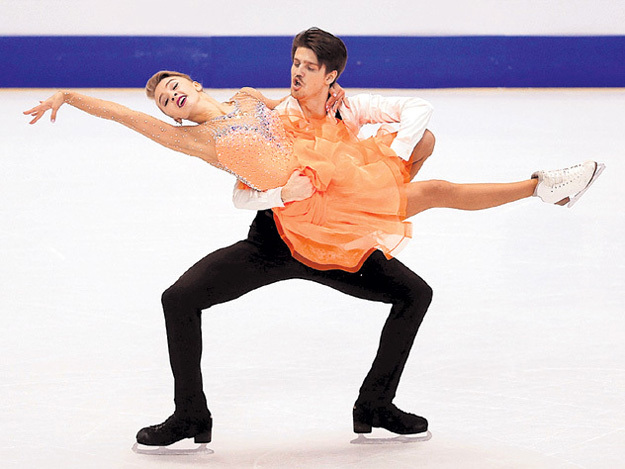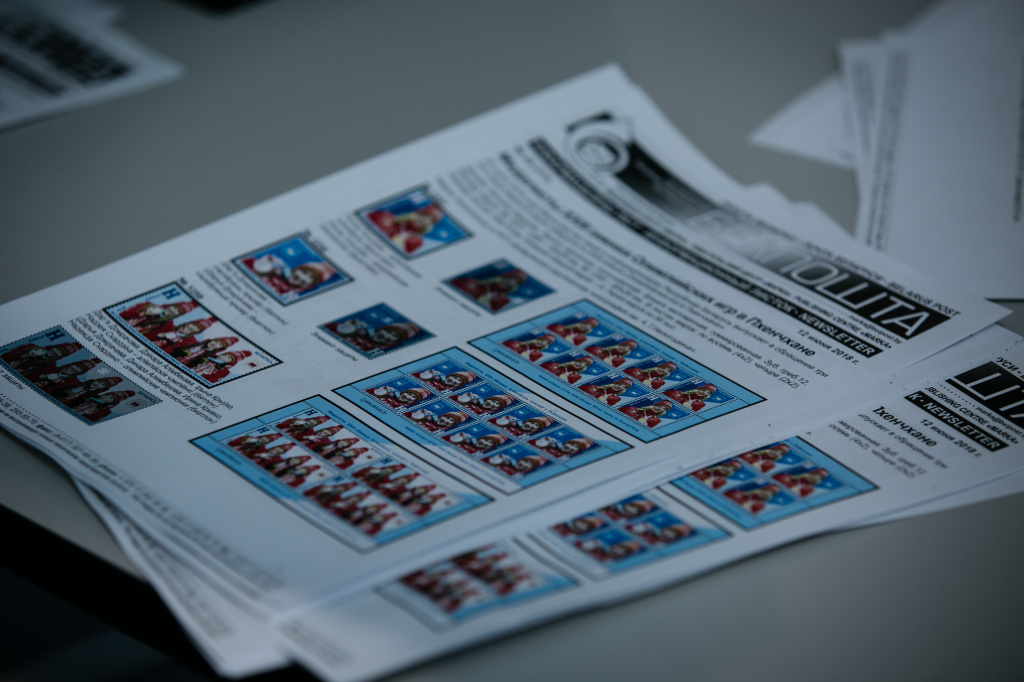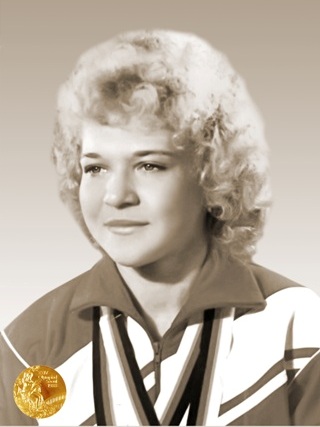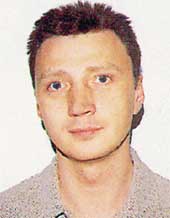Бажанова, Светлана Валерьевна. Светлана валерьевна бажанова
Бажанова, Светлана Валерьевна
В Википедии есть статьи о других людях с фамилией Бажанова .| Светлана Бажанова | |
| Светлана Валерьевна Бажанова | |
| Россия Россия | |
| 1 декабря 1972 ( 1972-12-01 ) (45 лет) | |
| Челябинск , СССР | |
| длинные дистанции | |
| 1 (1994) | |
| 40,77 | |
| 1:20,19 | |
| 1:59,46 | |
| 4:12,02 | |
| 7:13,12 | |
| Светлана Бажанова на Викискладе | |
Светла́на Вале́рьевна Бажа́нова ( 1 декабря 1972 , Челябинск , СССР ) — российская конькобежка , олимпийская чемпионка, заслуженный мастер спорта России ( 1994 ). Одна из трёх олимпийских чемпионов по конькобежному спорту от России (наряду с Александром Голубевым и Светланой Журовой ).
В 1994 году окончила Челябинский государственный институт физической культуры .
Олимпийская чемпионка 1994 года в беге на 3000 м, серебряный (1993) и бронзовый (1994) призёр чемпионатов Европы в классическом многоборье , 3-кратная абсолютная чемпионка России (1993, 1997, 2000).
Тренер — Н. В. Гудин [1] .
Награждена орденом Почета (1994).
Кандидат педагогических наук (1998).
Замужем за конькобежцем Вадимом Саютиным . Воспитывает сына и дочь.
В период подготовки и проведения XXII Олимпийских зимних игр 2014 года в Сочи была руководителем Дворца зимних видов спорта «Айсберг».
Примечания
Ссылки
www.cruer.com
Светлана Валерьевна Бажанова Википедия
В Википедии есть статьи о других людях с фамилией Бажанова.Светлана Бажанова | |
| Светлана Валерьевна Бажанова | |
| Россия Россия | |
| 1 декабря 1972(1972-12-01) (45 лет) | |
| Челябинск, СССР | |
| длинные дистанции | |
| 1 (1994) | |
| 40,77 | |
| 1:20,19 | |
| 1:59,46 | |
| 4:12,02 | |
| 7:13,12 | |
| Светлана Бажанова на Викискладе | |
Светла́на Вале́рьевна Бажа́нова (1 декабря 1972, Челябинск, СССР) — российская конькобежка, олимпийская чемпионка, заслуженный мастер спорта России (1994). Одна из трёх олимпийских чемпионов по конькобежному спорту от России (наряду с Александром Голубевым и Светланой Журовой).
В 1994 году окончила Челябинский государственный институт физической культуры.
Олимпийская чемпионка 1994 года в беге на 3000 м, серебряный (1993) и бронзовый (1994) призёр чемпионатов Европы в классическом многоборье, 3-кратная абсолютная чемпионка России (1993, 1997, 2000).
Тренер — Н. В. Гудин[1].
Награждена орденом Почета (1994).
Кандидат педагогических наук (1998).
Замужем за конькобежцем Вадимом Саютиным. Воспитывает сына и дочь.
В период подготовки и проведения XXII Олимпийских зимних игр 2014 года в Сочи была руководителем Дворца зимних видов спорта «Айсберг».
Примечания
Ссылки
wikiredia.ru
Светлана Валерьевна Бажанова Википедия
В Википедии есть статьи о других людях с фамилией Бажанова.Светлана Бажанова | |
| Светлана Валерьевна Бажанова | |
| Россия Россия | |
| 1 декабря 1972(1972-12-01) (45 лет) | |
| Челябинск, СССР | |
| длинные дистанции | |
| 1 (1994) | |
| 40,77 | |
| 1:20,19 | |
| 1:59,46 | |
| 4:12,02 | |
| 7:13,12 | |
| Светлана Бажанова на Викискладе | |
Светла́на Вале́рьевна Бажа́нова (1 декабря 1972, Челябинск, СССР) — российская конькобежка, олимпийская чемпионка, заслуженный мастер спорта России (1994). Одна из трёх олимпийских чемпионов по конькобежному спорту от России (наряду с Александром Голубевым и Светланой Журовой).
В 1994 году окончила Челябинский государственный институт физической культуры.
Олимпийская чемпионка 1994 года в беге на 3000 м, серебряный (1993) и бронзовый (1994) призёр чемпионатов Европы в классическом многоборье, 3-кратная абсолютная чемпионка России (1993, 1997, 2000).
Тренер — Н. В. Гудин[1].
Награждена орденом Почета (1994).
Кандидат педагогических наук (1998).
Замужем за конькобежцем Вадимом Саютиным. Воспитывает сына и дочь.
В период подготовки и проведения XXII Олимпийских зимних игр 2014 года в Сочи была руководителем Дворца зимних видов спорта «Айсберг».
Примечания[ | код]
Ссылки[ | код]
ru-wiki.ru
Бажанова, Светлана Валерьевна — Википедия
Материал из Википедии — свободной энциклопедии
Текущая версия страницы пока не проверялась опытными участниками и может значительно отличаться от версии, проверенной 28 апреля 2013; проверки требуют 10 правок. Текущая версия страницы пока не проверялась опытными участниками и может значительно отличаться от версии, проверенной 28 апреля 2013; проверки требуют 10 правок. В Википедии есть статьи о других людях с фамилией Бажанова.Светлана Бажанова | |
| Светлана Валерьевна Бажанова | |
| Россия Россия | |
| 1 декабря 1972(1972-12-01) (45 лет) | |
| Челябинск, СССР | |
| длинные дистанции | |
| 1 (1994) | |
| 40,77 | |
| 1:20,19 | |
| 1:59,46 | |
| 4:12,02 | |
| 7:13,12 | |
| Светлана Бажанова на Викискладе | |
Светла́на Вале́рьевна Бажа́нова (1 декабря 1972, Челябинск, СССР) — российская конькобежка, олимпийская чемпионка, заслуженный мастер спорта России (1994). Одна из трёх олимпийских чемпионов по конькобежному спорту от России (наряду с Александром Голубевым и Светланой Журовой).
В 1994 году окончила Челябинский государственный институт физической культуры.
Олимпийская чемпионка 1994 года в беге на 3000 м, серебряный (1993) и бронзовый (1994) призёр чемпионатов Европы в классическом многоборье, 3-кратная абсолютная чемпионка России (1993, 1997, 2000).
Тренер — Н. В. Гудин[1].
Награждена орденом Почета (1994).
Кандидат педагогических наук (1998).
Замужем за конькобежцем Вадимом Саютиным. Воспитывает сына и дочь.
В период подготовки и проведения XXII Олимпийских зимних игр 2014 года в Сочи была руководителем Дворца зимних видов спорта «Айсберг».
ru.wikiyy.com
Бажанова, Светлана Валерьевна - WikiVisually
1. Россия – Russia, also officially the Russian Federation, is a country in Eurasia. The European western part of the country is more populated and urbanised than the eastern. Russias capital Moscow is one of the largest cities in the world, other urban centers include Saint Petersburg, Novosibirsk, Yekaterinburg, Nizhny Novgorod. Extending across the entirety of Northern Asia and much of Eastern Europe, Russia spans eleven time zones and incorporates a range of environments. It shares maritime borders with Japan by the Sea of Okhotsk, the East Slavs emerged as a recognizable group in Europe between the 3rd and 8th centuries AD. Founded and ruled by a Varangian warrior elite and their descendants, in 988 it adopted Orthodox Christianity from the Byzantine Empire, beginning the synthesis of Byzantine and Slavic cultures that defined Russian culture for the next millennium. Rus ultimately disintegrated into a number of states, most of the Rus lands were overrun by the Mongol invasion. The Soviet Union played a role in the Allied victory in World War II. The Soviet era saw some of the most significant technological achievements of the 20th century, including the worlds first human-made satellite and the launching of the first humans in space. By the end of 1990, the Soviet Union had the second largest economy, largest standing military in the world. It is governed as a federal semi-presidential republic, the Russian economy ranks as the twelfth largest by nominal GDP and sixth largest by purchasing power parity in 2015. Russias extensive mineral and energy resources are the largest such reserves in the world, making it one of the producers of oil. The country is one of the five recognized nuclear weapons states and possesses the largest stockpile of weapons of mass destruction, Russia is a great power as well as a regional power and has been characterised as a potential superpower. The name Russia is derived from Rus, a state populated mostly by the East Slavs. However, this name became more prominent in the later history, and the country typically was called by its inhabitants Русская Земля. In order to distinguish this state from other states derived from it, it is denoted as Kievan Rus by modern historiography, an old Latin version of the name Rus was Ruthenia, mostly applied to the western and southern regions of Rus that were adjacent to Catholic Europe. The current name of the country, Россия, comes from the Byzantine Greek designation of the Kievan Rus, the standard way to refer to citizens of Russia is Russians in English and rossiyane in Russian. There are two Russian words which are translated into English as Russians
2. Челябинск – During Pugachevs Rebellion, the fortress withstood a siege by the rebel forces in 1774, but was eventually captured for several months in 1775. In 1782, as a part of Ufa Viceroyalty that was reformed into Orenburg Governorate, Chelyabinsk became a seat of a its own uyezd and finally was granted town status. Until the late 19th century, Chelyabinsk was a provincial town. In 1892, the Samara-Zlatoust Railway was completed which connected it with Moscow, also in 1892, construction of the Trans-Siberian Railway from Chelyabinsk started and in 1896 the city was linked to Ekaterinburg. Chelyabinsk became the hub for relocation to Siberia, for fifteen years more than fifteen million people - a tenth of Russia - passed through Chelyabinsk. Some of them remained in Chelyabinsk, which contributed to its rapid growth, soon Chelyabinsk started turning into a major trade center, its population reached 20,000 inhabitants by 1897,45,000 by 1913, and 70,000 by 1917. For rapid growth at the turn of the 20th century, similar to American cities, during the first Five-Year Plans of the 1930s, Chelyabinsk experienced rapid industrial growth. Several establishments, including the Chelyabinsk Tractor Plant and the Chelyabinsk Metallurgical Plant, were built at this time, during World War II, Joseph Stalin decided to move a large part of Soviet factory production to places out of the way of the advancing German armies in late 1941. This brought new industries and thousands of workers to Chelyabinsk, facilities for the production of T-34 tanks and Katyusha rocket launchers existed in Chelyabinsk. During World War II, it produced 18,000 tanks, in the press of the time Chelyabinsk was informally called Tankograd or Tank City. Kirov Factory no.185 moved here from Leningrad to produce heavy tanks, fragments fell in and around Chelyabinsk. Interior Ministry spokesman Vadim Kolesnikov said 1,100 people had called for medical assistance following the incident, one woman suffered a broken spine. Kolesnikov also said about 600 square meters of a roof at a factory had collapsed. The size has been estimated at 17 meters diameter with a mass of 10,000 or 11,000 metric tons, the power of the explosion was about 500 kilotons of TNT, which is 20–30 times more energy than was released from the atomic bomb exploded in Hiroshima. Luckily, thanks to the altitude of the explosion the city managed to avoid large casualties. Chelyabinsk is the center of the oblast. Within the framework of administrative divisions, it is incorporated as the City of Chelyabinsk—an administrative unit with the equal to that of the districts. As a municipal division, the City of Chelyabinsk is incorporated as Chelyabinsky Urban Okrug, in June 2014, Chelyabinsks seven city districts were granted municipal status
3. Летние Олимпийские игры – The Summer Olympic Games or the Games of the Olympiad, first held in 1896, is an international multi-sport event that is hosted by a different city every four years. The most recent Olympics were held in Rio de Janeiro, Brazil, the International Olympic Committee organizes the games and oversees the host citys preparations. In each Olympic event, gold medals are awarded for first place, silver medals are awarded for second place, and bronze medals are awarded for third, the Winter Olympic Games were created due to the success of the Summer Olympics. The Olympics have increased in scope from a 42-event competition with fewer than 250 male competitors from 14 nations in 1896 to 302 events with 10,768 competitors from 204 nations in 2012, eighteen countries have hosted the Summer Olympics. The United States has hosted four Summer Olympics, more than any other nation, four cities have hosted two Summer Olympics, Athens, Paris, Los Angeles, and Tokyo. Tokyo is the first city outside of the Western world to host the Summer Olympics multiple times, asia has hosted the Summer Olympics four times in Japan, South Korea, and China. The only Summer Olympics held in the Southern Hemisphere have been in Australia, the 2016 Games are the first Summer Olympics to be held in South America and the first to be held during the local winter season. Africa has yet to host a Summer Olympics, only five countries—Greece, Australia, France, Great Britain, and Switzerland—have been represented at every Summer Olympic Games. The only country to have won at least one medal at every Summer Olympic Games is Great Britain. The United States leads the medal table. Qualification rules for each of the Olympic sports are set by the International Sports Federations that governs that sports international competition, for individual sports, competitors typically qualify through attaining a certain place in a major international event or on the IFs ranking list. There is a rule that maximum three individual athletes may represent each nation per competition. Nations most often qualify teams for team sports through continental qualifying tournaments, each nation may be represented by no more than one team per competition a team is two people in some sports. The United States has hosted four Summer Olympic Games, more than any other nation, the United Kingdom hosted the 2012 Olympic Games, its third Summer Olympic Games, in its capital London, making London the first city to host the Summer Olympic Games three times. Australia, France, Germany, Greece, and Japan have all hosted the Summer Olympic Games twice. Other countries that have hosted the Summer Olympics are Belgium, Brazil, China, Canada, Finland, Italy, Mexico, Netherlands, South Korea, Spain, the Soviet Union, asia has hosted the Summer Olympics three times and will host again in 2020. In 2016, Rio de Janeiro hosted the first Summer Olympics in South America, three cities have hosted two Summer Olympic Games, Los Angeles, Paris, and Athens. Stockholm has hosted events at two Summer Olympic Games, having hosted the games in 1912 and the events at the 1956 Summer Olympics—which they are usually listed as jointly hosting
4. Зимние Олимпийские игры 1994 – The 1994 Winter Olympics, officially known as the XVII Olympic Winter Games, was a winter multi-sport event celebrated from 12 to 27 February 1994 in and around Lillehammer, Norway. Lillehammer failed to win the bid for the 1992 event, Lillehammer was awarded the 1994 Winter Olympics in 1988, after beating Anchorage, United States, Östersund, Sweden, and Sofia, Bulgaria. Lillehammer is the northernmost city to ever host the Winter Games, while many events took place in Lillehammer, skating took place in Hamar, some ice hockey matches were placed in Gjøvik, while Alpine skiing was held in Øyer and Ringebu. Sixty-seven countries and 1,737 athletes participated in six sports, fourteen countries made their debut in the Winter Olympics, of which nine were former Soviet republics. The Games also saw the introduction of stricter qualifying rules, reducing the number of under-performing participants from warm-weather countries, new events were two new distances in short track speed skating and aerials, while speed skating was moved indoors. Nearly two million people spectated the games, which were the first to have the Olympic truce in effect, the games were succeeded by the 1994 Winter Paralympics from 10 to 19 March. Manuela Di Centa and Lyubov Yegorova dominated womens cross-country skiing, taking five and four medals, a crowd of over 100,000 saw Italy beat Norway by 0.4 seconds on the mens 4 x 10 km relay. Vreni Schneider won a set of medals in Alpine skiing. Nancy Kerrigan had, before the games, been clubbed by Tonya Hardings associate, Johann Olav Koss won three speed skating events, while 13-year-old Kim Yoon-Mi became the youngest-ever Olympic gold medalist. Sweden beat Canada in a penalty shootout in the ice hockey final. With 11 gold medals, Russia won the most events, while with 26, planning of the Lillehammer bid started in 1981, following Falun, Swedens failed bid for the 1988 Winter Olympics. It was supported by the government largely to help stimulate the economy of the inland counties, Lillehammer originally bid for the 1992 Games, but came fourth in the voting. A new bid was launched for the 1994 Games, modified with an speed skating venue. Three other locations bid for the games, Östersund, Anchorage, the 94th IOC Session, held in Seoul on 15 September 1988, voted Lillehammer the host for the Games. The Lillehammer Olympics were the last Winter Games to date to be held in a town,1.21 million tickets were sold for the games. LOOC estimated that an additional 500,000 viewed the games for free along the courses, in addition,180,000 seats were used by the media and VIPs. The overall responsibility for the games was held by the Lillehammer Olympic Organizing Committee, the government had issued a guarantee for the games, and also covered the expenses related to infrastructure. The games had a revenue of NOK2.71 billion, of which NOK1.43 billion was from television rights, NOK0.65 billion was from sponsors, and NOK0.15 billion was from ticket sales
wikivisually.com
Бажанова Светлана Валерьевна Вики
В Википедии есть статьи о других людях с фамилией Бажанова.Светлана Бажанова | |
| Светлана Валерьевна Бажанова | |
| Россия Россия | |
| 1 декабря 1972(1972-12-01) (45 лет) | |
| Челябинск, СССР | |
| длинные дистанции | |
| 1 (1994) | |
| 40,77 | |
| 1:20,19 | |
| 1:59,46 | |
| 4:12,02 | |
| 7:13,12 | |
| Светлана Бажанова на Викискладе | |
Светла́на Вале́рьевна Бажа́нова (1 декабря 1972, Челябинск, СССР) — российская конькобежка, олимпийская чемпионка, заслуженный мастер спорта России (1994). Одна из трёх олимпийских чемпионов по конькобежному спорту от России (наряду с Александром Голубевым и Светланой Журовой).
В 1994 году окончила Челябинский государственный институт физической культуры.
Олимпийская чемпионка 1994 года в беге на 3000 м, серебряный (1993) и бронзовый (1994) призёр чемпионатов Европы в классическом многоборье, 3-кратная абсолютная чемпионка России (1993, 1997, 2000).
Тренер — Н. В. Гудин[1].
Награждена орденом Почета (1994).
Кандидат педагогических наук (1998).
Замужем за конькобежцем Вадимом Саютиным. Воспитывает сына и дочь.
В период подготовки и проведения XXII Олимпийских зимних игр 2014 года в Сочи была руководителем Дворца зимних видов спорта «Айсберг».
Примечания[ | код]
Ссылки[ | код]
ru.wikibedia.ru
Светлана Валерьевна Бажанова - Википедия
Материал из Википедии — свободной энциклопедии
(перенаправлено с «»)Текущая версия страницы пока не проверялась опытными участниками и может значительно отличаться от версии, проверенной 28 апреля 2013; проверки требуют 7 правок. Текущая версия страницы пока не проверялась опытными участниками и может значительно отличаться от версии, проверенной 28 апреля 2013; проверки требуют 7 правок. В Википедии есть статьи о других людях с фамилией Бажанова.| Светлана Бажанова | ||
| Полное имя | Светлана Валерьевна Бажанова | |
| Гражданство | Россия Россия | |
| Дата рождения | 1 декабря 1972(1972-12-01) (44 года) | |
| Место рождения | Челябинск, СССР | |
| Специализация | длинные дистанции | |
| Титулы | ||
| Олимпийский чемпион | 1 (1994) | |
| Личные рекорды | ||
| 500 метров | 40,77 | |
| 1000 метров | 1:20,19 | |
| 1500 метров | 1:59,46 | |
| 3000 метров | 4:12,02 | |
| 5000 метров | 7:13,12 | |
Светла́на Вале́рьевна Бажа́нова (род. 1 декабря 1972 года в Челябинске, СССР) — российская конькобежка, олимпийская чемпионка, заслуженный мастер спорта России (1994). Одна из трёх олимпийских чемпионов по конькобежному спорту от России (наряду с Александром Голубевым и Светланой Журовой).
В 1994 году окончила Челябинский государственный институт физической культуры.
Олимпийская чемпионка 1994 года в беге на 3000 м, серебряный (1993) и бронзовый (1994) призёр чемпионатов Европы в классическом многоборье, 3-кратная абсолютная чемпионка России (1993, 1997, 2000).
Тренер — Н. В. Гудин[1].
Награждена орденом Почета (1994).
Кандидат педагогических наук (1998).
Замужем за конькобежцем Вадимом Саютиным. Воспитывает сына и дочь.
В период подготовки и проведения XXII Олимпийских зимних игр 2014 года в Сочи была руководителем Дворца зимних видов спорта "Айсберг".
Примечания[ | ]
Ссылки[ | ]
encyclopaedia.bid






